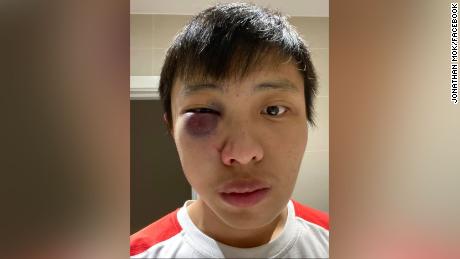Earlier this week, U.S. President Donald Trump described Covid-19 (Coronavirus) as “The Chinese Flu” during a press conference.
He defended the words as a deliberate retaliation against claims that the virus was brought to China by U.S. military personnel, which he denies.
Covid-19 has created worldwide chaos across the world; cancellations, lockdowns and travel bans. Shops have closed down and the economy is beginning to stutter. Emergency services are stretched thin. In attempts to stop further spreading countries such as: Canada, Poland and The US, borders have been closed.
The toll of those infected with Covid is predicted to be 55,000 in the UK alone.
Where did Coronavirus come from?
This new strain of coronavirus originated in Wuhan, China. Scientists believe the outbreak begun in December at a seafood market. Wuhan is the capital of Hubei province, a landlocked province in the middle of the country.

Scientists speculate that the source of the outbreak was an animal and it’s been postulated that the virus could have spread to humans via bats, snakes or even pangolins, though it is still unconfirmed the animal that was the source of the virus.
Ebola Virus, why was it not called the African virus?
The Ebola virus was first discovered in 1976 near the Ebola River which is now the Democratic Republic of Congo. The virus still infects people and there are outbreaks in many African countries. Scientists remain unaware as to where the Ebola virus comes from.
In 2015, Ebola caused mass hysteria when it arrived in the UK, although there was only one reported case.
UK military healthcare worker Pauline Cafferkey was infected with Ebola in Sierra Leone. She was flown home and was treated at the Royal Free Hospital in London.
In no news outlet or prime minister or presidents speeches was Ebola defined as the “African Flu”. Perhaps it was because it did not have the same impact that Corona has. Either way, does the principle remain the same? Or does the impact of a virus give credibility to a president defining the flu through nationalist terms?
Racial Hysteria
Attaching race or ethnicity to promotes a hysteria, a panic that incidentally creates a butterfly effect. The hostility it creates has seen attacks on Asians rise. It has created anxiety amongst races and a hostility targeted at Asians.

Jonathan Mok a student studying in London was attacked by a group of people on Oxford Street on February 24. Many other students are fleeing England after the rise in racist attacks.
Some people are unable to discern Asian Phenotypes. Trump’s comments have indirectly lumped all Asians into a box, from Chinese to Japanese to other Asian counterparts. Instead, they are all being treated with the same degree of racist and xenophobic anxiety.
Trump does not understand the comments are laden with racism. Without Trump seeing outside of his box, he remains contained in his comments which have no immediate effect on his life. They instead affect the lives of others mainly Asians.
With great power comes great responsibility in the words delivered.
Trump’s comments are unintentionally careless with the intention to refer to where Covid-19 originated. However, to those who may not be able to realise the power in his comments, the Asian community are suffering at the hands of racist attacks. Trump’s words can serve to legitimise the anxiety and widespread hostility. His rhetoric does not help or serve to eradicate the spread of Covid-19. Rather it continues another virus humans are subject to. The social disease that is racism.
Sticks and stone may not hurt our bones, but it can serve to trigger the bones of the racism in others.



